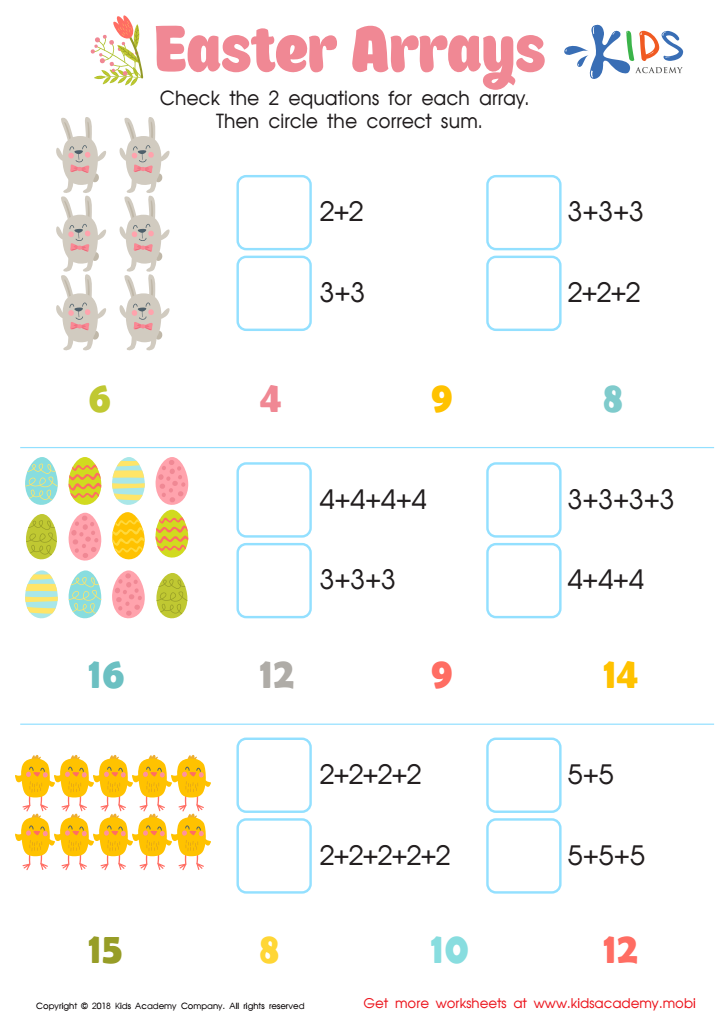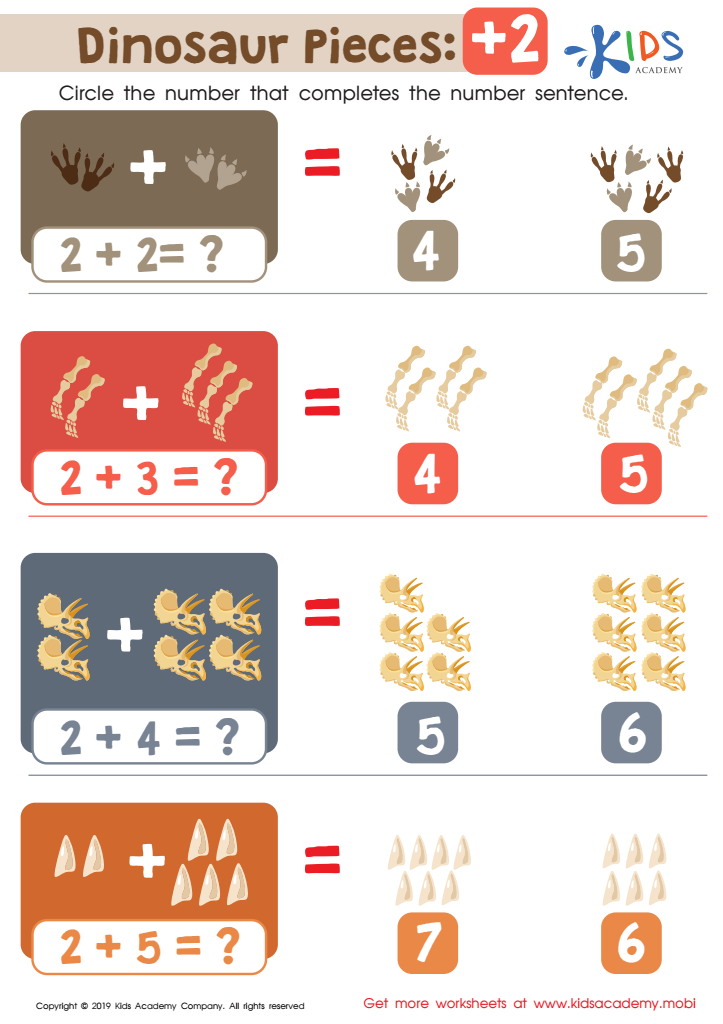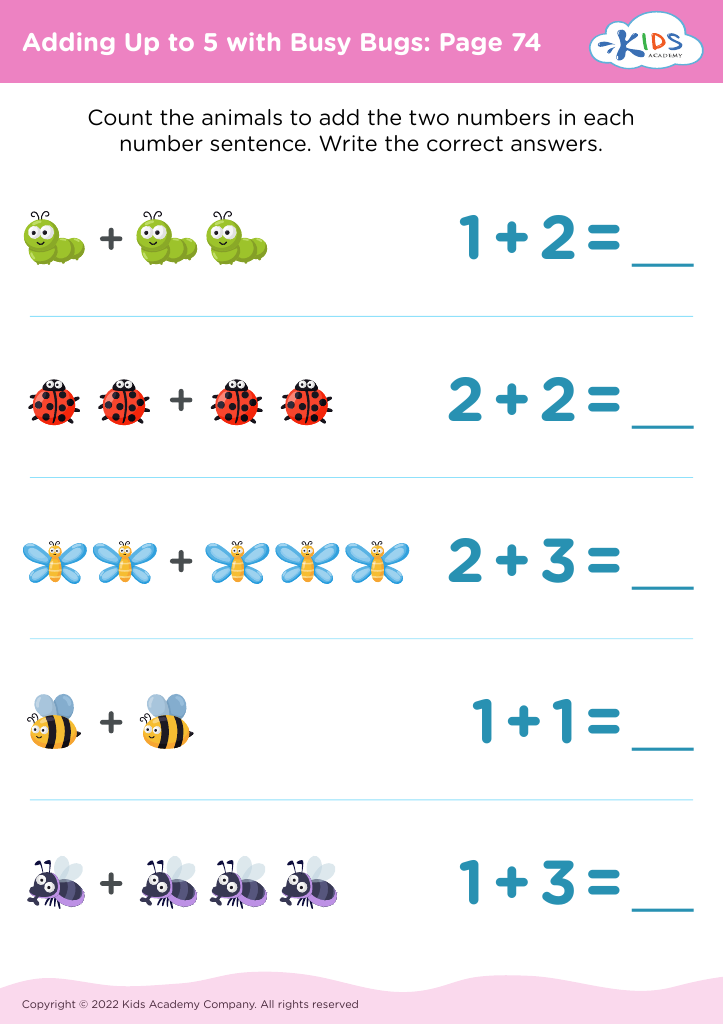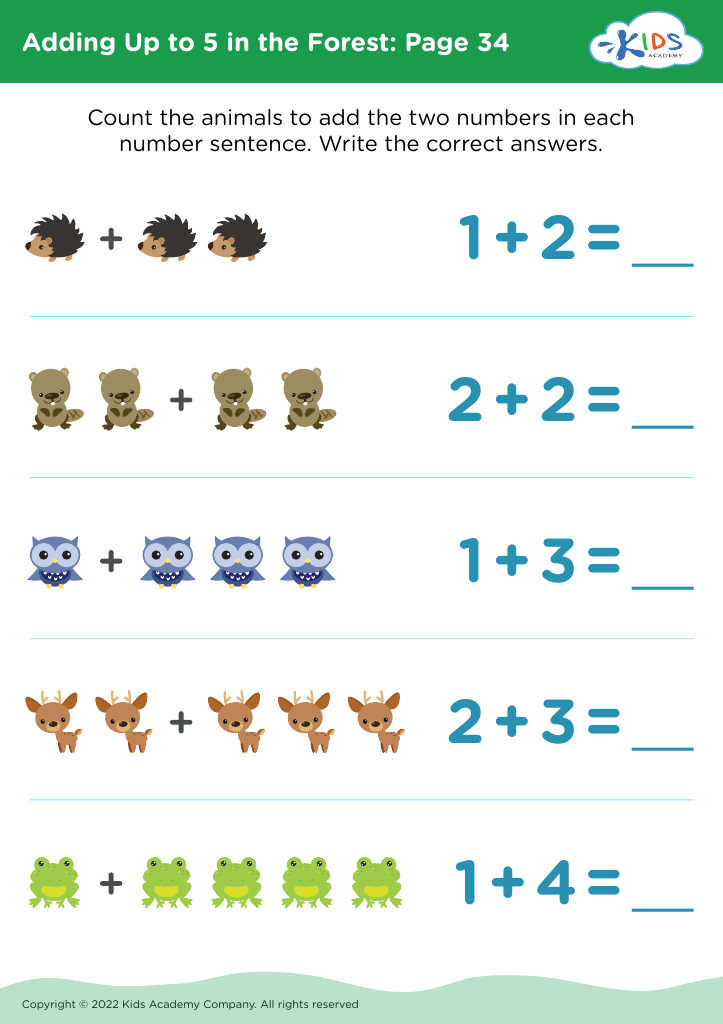Fine motor development Addition & Subtraction Worksheets for Ages 3-7
4 filtered results
-
From - To
Discover our Fine Motor Development Addition & Subtraction Worksheets, tailored for ages 3-7! These engaging worksheets are designed to strengthen fine motor skills while introducing foundational math concepts. Your child will enjoy a variety of activities like tracing, drawing, and coloring, all of which are seamlessly integrated with addition and subtraction exercises. Perfect for nurturing early math abilities, these worksheets not only enhance counting and problem-solving skills but also develop hand-eye coordination and pencil control. Visit Kids Academy to find fun and educational worksheets that turn learning into an exciting adventure for your little ones.


Easter Arrays Worksheet


Dinosaur Pieces: +2 Worksheet
Fine motor development is crucial for children ages 3 to 7 as it directly impacts their overall learning and everyday skills. Fine motor skills involve the small muscles in the hands, wrists, and fingers, which are essential for tasks such as writing, buttoning clothes, and using scissors. Encouraging development in this area sets a foundation for academic success, particularly in math where precision and control are needed for writing numbers and solving problems.
Understanding addition and subtraction is equally vital for young learners. These basic arithmetic operations form the backbone of more complex mathematical concepts they'll encounter later. Early mastery can boost confidence, encourage a positive attitude toward math, and enhance logical thinking. Practicing these skills helps children grasp other key concepts like counting, number recognition, and patterns.
Combining fine motor skill development with arithmetic exercises can be highly effective. For instance, activities like counting beads or placing numbers on a timeline enhance both areas simultaneously. Teachers and parents should care because these foundational skills contribute to a child's ease in learning future academic content and foster independence in daily activities, thus ensuring a well-rounded growth trajectory for cognitive and physical development.
 Assign to My Students
Assign to My Students


















